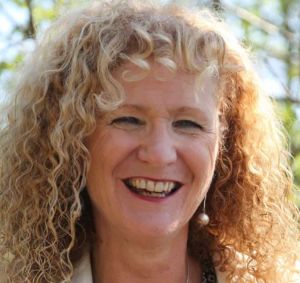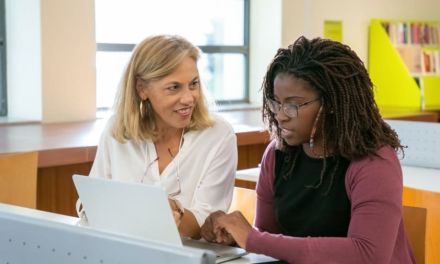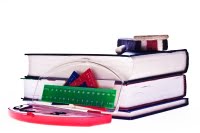Alternative provisions can be transformative for students and transcend their educational potential if appropriate measures are implemented. It is important to implement the right support for students with specific needs to help them achieve the best possible outcomes.
The overarching desire to empower students to be mindful and improve their confidence can allow them to enhance their learning capabilities and welfare development. EDClass was fortunate to discuss with Jackie Beere OBE alternative provisions, curriculum and the reintegration of students.
Jackie was a former headteacher and is now a mindset coach who designed an effective program for developing emotional intelligence and educating people on learning to learn. She also published her insightful book – ‘The Complete Learners Toolkit’ with lessons in metacognition, learning to learn and self-regulation.
Jackie highlighted the importance of students needing to realise that they shouldn’t be so self-critical. Students worry constantly about attaining a certain grade when in reality we should look at embedding supportive structures.
Jackie said:
“I think you forget about grades until you get students to understand how to practice self-regulation, and this becomes present when understanding how to deal with your emotions. We need to shift negative thinking habits in children to a more positive approach of being optimistic, hopeful, joyful and include self-efficacy. Students also need to build up a state of contentment and understanding that they’re going to get things wrong.”
Creating a safe, calm and orderly environment can help eradicate negative thoughts in students as they feel more relaxed during their learning.
1. Implement a robust and enriching curriculum
Having a succinct and easy to comprehend curriculum is vital for students, especially in alternative provisions. They will need a curriculum that suits their specific needs and has continuous assessment integrated into it. This can help students to focus on their personal development alongside attaining grades. Jackie stated:
“A big part of learning is making mistakes and that’s why we have to help students learn from failure so they can be fearless in learning. With curriculum, students at school have a vast number of subjects to learn but they need lessons or projects on personal development, learning to learn, neuroscience and emotional intelligence too. Coaching approaches, including peer coaching, really help to giving ownership of self-regulation and cognitive flexibility. Students can fulfil their potential when they believe in it themselves.”
A curriculum that focuses on core and additional subjects for creativity can be beneficial for students’ knowledge and understanding. The child’s emotional intelligence should be accommodated alongside their personal development. Also, their specific needs should be addressed so a curriculum that suits their ability can be implemented. Jackie added:
“You’ve got to make them active learners. Students have to be doing and experiencing things and you’ve got to develop their understanding of their mental capacity. Teach them about memory and teach them about how to motivate themselves.”
Continuously assessing students’ academic knowledge and how they are developing in terms of their welfare is crucial if they are to succeed. Engaging students in active lessons can enhance their development and improve their outcomes.
2. Have methodical reintegration strategies in place
Reintegrating students should be the main objective in alternative provisions, how can it be done successfully? Reintegration strategies such as focusing on the student’s mindset and areas for improvement can be highly beneficial. Why are these students thinking negatively and how can we improve their enthusiasm for learning and outlook on life? Jackie said:
“From my coaching experience and knowledge, it’s clear that the student has to make the decision to return to school. You’ve got to allow them to predict what it is going to be like when they return. Students need to recognise how they can be a self-saboteur themselves and they need to realise what makes them feel anxious and how it can be avoided.”
A return to school is a huge decision for a student and should only be done when they and the school find it the most appropriate opportunity to do so. It could also be good to relate to their likes and interests to help drive engagement with their learning which can help support them on their journey. Jackie added:
“Empathy, optimism and hope for the future is massive. Those three things are what we’ve got to give children because otherwise there could be negative consequences. Being able to relate with students on something they enjoy is also so important.”
By implementing a pastoral approach, alongside their studies, students will feel valued and welcomed. The connection made, and rapport built in alternative provisions can then allow them to carry their revitalisation into mainstream settings and later life.
3. Effectiveness of online alternative provision
Online alternative provision has now also demonstrated how they truly can implement supportive structures to help students achieve the best possible outcomes. Jackie said:
“I’m very much in favour of it. When school isn’t working for students it’s better to have an intervention. But, it’s important to not allow students to get comfortable in these settings as they will then be better prepared for experiences in later life. If they have someone monitoring them, that is brilliant. A coach, trainer or tutor to keep them on track to help them succeed, I think it’s a great idea and can totally work.”
Integrating an early intervention to find the child’s requirements can allow for a variety of students to benefit from online alternative provisions. Those who have mental health or behavioural challenges can garner a re-established engagement in life as they feel they can focus in a setting away from distractions. This subsequently will then convert into further educational development if the right supportive measures are in place such as a high-quality education, supportive teachers and tracking and monitoring of attendance, attainment and safeguarding.
EDClass is the perfect online alternative provision model that does exactly this and assists students with their well-being and academic journey. The system can empower students to fulfil their true educational potential, support parents and families and create sustainability for all involved.
If you would like a free online demonstration of EDClass, call 01909 568338, send an email to mail@edclass.com or book directly here.









